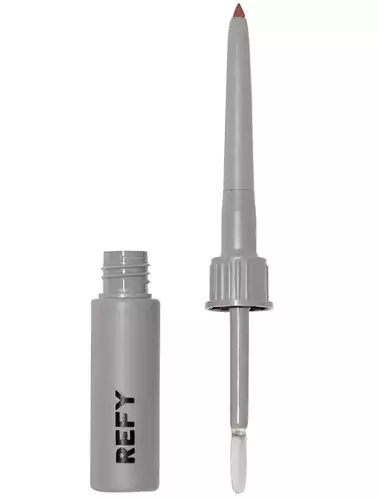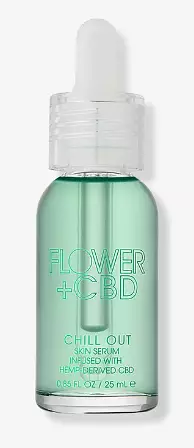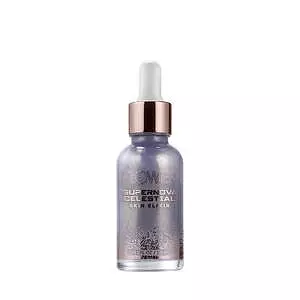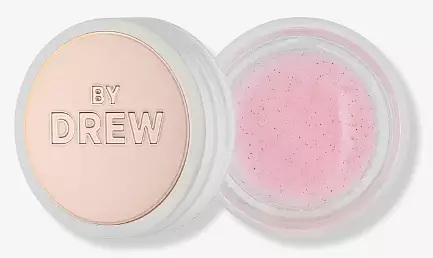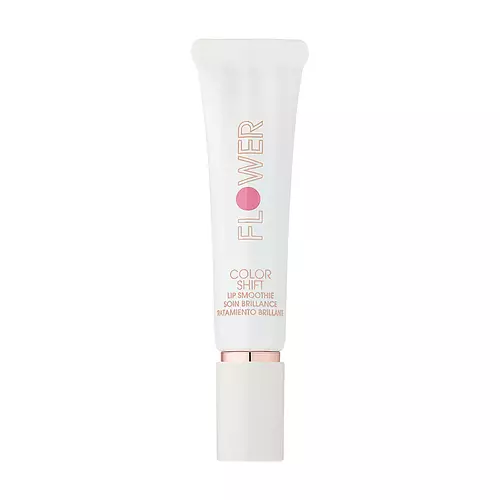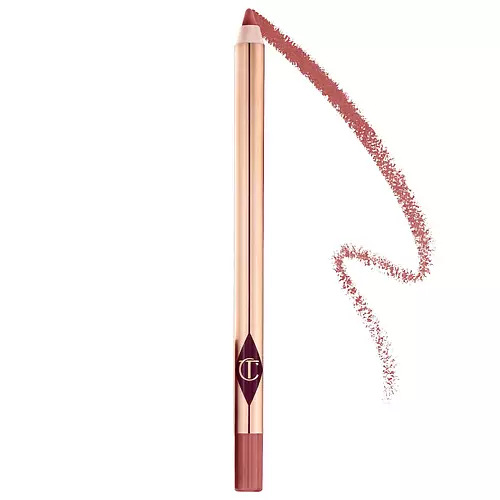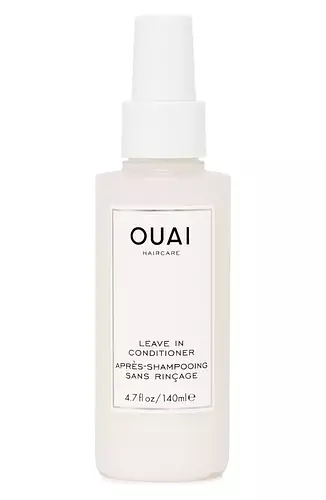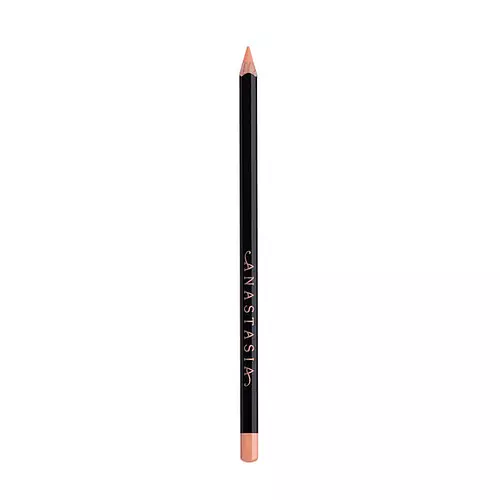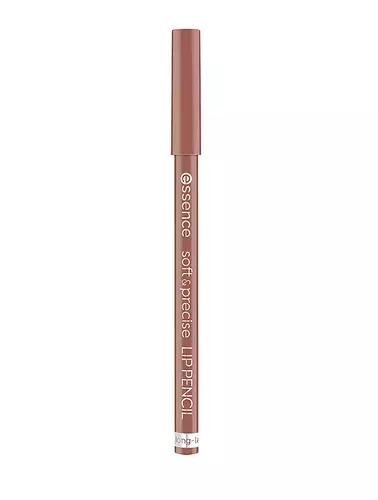
Flower Beauty by Drew Petal Pout Lip Liner Ingredients Explained
Published on December 09, 2022 Submitted by r2398
Overview
What it is
Lip liner with 23 ingredients that contains exfoliants and Vitamin E
Cool Features
It is cruelty-free and reef safe
Suited For
It has ingredients that are good for brightening skin
Free From
It doesn't contain any harsh alcohols, common allergens, fragrances, oils, parabens or sulfates
Fun facts
Flower Beauty by Drew is from United States.
We independently verify ingredients and our claims are backed by peer-reviewed research. Does this product need an update? Let us know.
Lip liner with 23 ingredients that contains exfoliants and Vitamin E
Quick info
You should know
Notable Ingredients
This product contains 1 ingredient that may have this attribute:
This product contains 2 ingredients that may have this attribute:
Benefits
This product contains 1 ingredient that may have this attribute:
Concerns
This product contains 1 ingredient that may have this attribute:
This product contains 1 ingredient that may have this attribute:
Ingredients 23
Dimethicone is a silicone used for making products smooth and silky. It also has the added benefit of sealing in hydration. The amount of dimethicone found in beauty products is considered safe and non-comedogenic, meaning it won't clog pores.
Cyclopentasiloxane is a silicone used to improve texture and trap moisture. An easier name for this is D5.
Polyethylene is a synthetic ingredient that helps the skin retain moisture. It is a polymer.
Bis-Diglyceryl Polyacyladipate-2 is lipid-based synthetic skin-conditioning agent. As an emollient, it helps soften and hydrate the skin.
Microcrystalline Wax is created by de-oiling petroleum. It is highly refined and purified before being added to cosmetics.
Ozokerite is a naturally occuring mineral wax. In cosmetics, ozokerite is used as a texture enhancer.
This silicone is an emollient. Emollients create a thin film on the skin to prevent moisture from escaping.
Dimethicone/Vinyl Dimethicone Crosspolymer is a silicone used to improve the texture of products and absorb oil. It does not get absorbed into the skin.
Polybutene is used to help control the viscosity of a product. This just means it helps adjusts the texture.
Polymethylsilsesquioxane is a silicone used as a film forming agent.
Disteardimonium Hectorite comes from the clay mineral named hectorite. It is used to add thickness to a product.
Caprylyl Glycol is a humectant and emollient, meaning it attracts and preserves moisture.
Tocopheryl Acetate is AKA Vitamin E. It is an antioxidant and protects your skin from free radicals. Free radicals damage the skin by breaking down collagen.
Synthetic Fluorphlogopite is the synthethic version of mica. It consists of fluorine, aluminum and silicate.
This ingredient is a solvent. It helps dissolve active ingredients and alter the texture of products.
Triethoxycaprylylsilane is a silicone used to bind and stabilize ingredients.
Silica is a mineral naturally found in our skin. It helps to thicken and smooth the texture of a product. It also acts as an agent for other ingredients by increasing the absorption of other ingredients into the skin.
Dimethicone, Cyclopentasiloxane, Polyethylene, Stearyl Dimethicone, Phenylpropyldimethylsiloxysilicate, Bis-Diglyceryl Polyacyladipate-2, Microcrystalline Wax, Ozokerite, C30-50 Alcohols, Trimethylsiloxysilicate, Hdi/Trimethylol Hexyllactone Crosspolymer, Dimethicone/Vinyl Dimethicone Crosspolymer, Polybutene, Polymethylsilsesquioxane, Bis-Hydroxyethoxypropyl Dimethicone, Disteardimonium Hectorite, Caprylyl Glycol, Tocopheryl Acetate, Panthenyl Ethyl Ether, Synthetic Fluorphlogopite, Propylene Carbonate, Triethoxycaprylylsilane, Silica
Ingredient Ratings
Based on the number of likes and dislikes each ingredient has received.
Ingredients Explained
Dimethicone is a silicone used for making products smooth and silky. It also has the added benefit of sealing in hydration. The amount of dimethicone found in beauty products is considered safe and non-comedogenic, meaning it won't clog pores.
Dimethicone has been found increase absorption in skin, boosting the benefits of other ingredients. While there is concern for the safety of dimethicone, the levels used in skincare are safe for use.
Cyclopentasiloxane is a silicone used to improve texture and trap moisture. An easier name for this is D5.
D5 is considered lightweight and volatile. Volatile means it evaporates quickly after application. Once evaporated, D5 leaves a thin barrier that helps keep skin hydrated.
D5 is an emollient. Emollients help soften the skin and prevent water loss. Silicones create a silky texture in products. D5 helps other ingredients become more spreadable.
Studies show D5 is safe to use in skincare products. We recommend speaking with a skincare professional if you have concerns.
Learn more about CyclopentasiloxanePolyethylene is a synthetic ingredient that helps the skin retain moisture. It is a polymer.
Polyethylene is also typically used within product formulations to help bind solid ingredients together and thicken oil-based ingredients. When added to balms and emulsions, it helps increase the melting point temperature.
Stearyl Dimethicone is a type of silicone.
We don't have a description for Phenylpropyldimethylsiloxysilicate.
Bis-Diglyceryl Polyacyladipate-2 is lipid-based synthetic skin-conditioning agent. As an emollient, it helps soften and hydrate the skin.
Emollients create a barrier on the skin to trap moisture in.
Microcrystalline Wax is created by de-oiling petroleum. It is highly refined and purified before being added to cosmetics.
Microcrystalline Wax is used to enhance the texture and create even consistency. It helps stabilize a product by preventing ingredients from separating.
Ozokerite is a naturally occuring mineral wax. In cosmetics, ozokerite is used as a texture enhancer.
Ceresin wax is derived from this ingredient.
The melting point of ozokerite is 58-100 C.
Ozokerite is found all over the world including Scotland, the US, and India.
Learn more about OzokeriteWe don't have a description for C30-50 Alcohols.
This silicone is an emollient. Emollients create a thin film on the skin to prevent moisture from escaping.
It is not soluble in water and helps increase water-resistance in products.
According to a manufacturer, it can blend seamlessly with silicone oils, such as Cyclopentasiloxane.
Learn more about TrimethylsiloxysilicateWe don't have a description for Hdi/Trimethylol Hexyllactone Crosspolymer.
Dimethicone/Vinyl Dimethicone Crosspolymer is a silicone used to improve the texture of products and absorb oil. It does not get absorbed into the skin.
Like other silicones, Dimethicone/Vinyl Dimethicone Crosspolymer helps condition the skin by creating a barrier. In this sense, it can act as an emollient and trap moisture in.
Polybutene is used to help control the viscosity of a product. This just means it helps adjusts the texture.
It is a polymer and does not get absorbed into the skin due to its large size.
Studies found this ingredient did not irritate skin in concentrations below 15%.
Learn more about PolybutenePolymethylsilsesquioxane is a silicone used as a film forming agent.
When applied to the skin, this ingredient creates an invisible film on the surface. This film still allows oxygen to pass through, but prevents moisture from escaping. This can help condition and hydrate the skin. It also leaves a silky feel when applied.
Polymethylsilsesquioxane has not been shown to clog pores. It has been deemed safe to use up to 55%, but most cosmetics use much less.
If you have concerns about using this ingredient, we recommend speaking with a professional.
Learn more about PolymethylsilsesquioxaneBis-Hydroxyethoxypropyl Dimethicone is a type of silicone.
Disteardimonium Hectorite comes from the clay mineral named hectorite. It is used to add thickness to a product.
It can also help stabilize a product by helping to disperse other ingredients.
Hectorite is a rare, white clay mineral.
Learn more about Disteardimonium HectoriteCaprylyl Glycol is a humectant and emollient, meaning it attracts and preserves moisture.
It is a common ingredient in many products, especially those designed to hydrate skin. The primary benefits are retaining moisture, skin softening, and promoting a healthy skin barrier.
Though Caprylyl Glycol is an alcohol derived from fatty acids, it is not the kind that can dry out skin.
This ingredient is also used as a preservative to extend the life of products. It has slight antimicrobial properties.
Learn more about Caprylyl GlycolTocopheryl Acetate is AKA Vitamin E. It is an antioxidant and protects your skin from free radicals. Free radicals damage the skin by breaking down collagen.
One study found using Tocopheryl Acetate with Vitamin C decreased the number of sunburned cells.
Tocopheryl Acetate is commonly found in both skincare and dietary supplements.
Learn more about Tocopheryl AcetateWe don't have a description for Panthenyl Ethyl Ether.
Synthetic Fluorphlogopite is the synthethic version of mica. It consists of fluorine, aluminum and silicate.
Synthetic Fluorphlogopite is used to add volume to products.
It is considered non-irritating on the skin.
Learn more about Synthetic FluorphlogopiteThis ingredient is a solvent. It helps dissolve active ingredients and alter the texture of products.
Propylene Carbonate is commonly used in makeup and with clay, such as montmorillonite or bentonite.
Studies show this ingredient to be safe for cosmetics. When it is undiluted, it can cause skin irritation. (It is always diluted in skincare and makeup). This ingredient is water-soluble.
Propylene Carbonate is created from propylene glycol and carbonic acid.
Learn more about Propylene CarbonateTriethoxycaprylylsilane is a silicone used to bind and stabilize ingredients.
As an emulsifier, it helps prevent ingredients from separating. This can help elongate the shelf life of products.
Triethoxycaprylylsilane is often used to coat mineral sunscreens ingredients to help give a better feel. It also helps reduce oxidative stress in sunscreens.
Learn more about TriethoxycaprylylsilaneSilica is a mineral naturally found in our skin. It helps to thicken and smooth the texture of a product. It also acts as an agent for other ingredients by increasing the absorption of other ingredients into the skin.
Silica is often used for absorption and can help reduce shine when products are applied. Silica occurs in naturally in materials like clay and sandstone, and it can also be produced synthetically.
Silica is present naturally within the skin during collagen production and when reducing inflammation.
Learn more about SilicaCompared With
Here are some products that it's often compared with
More Flower Beauty by Drew Products
See all Flower Beauty by Drew productsMore Lip Liners
See all lip linersWe're dedicated to providing you with the most up-to-date and science-backed ingredient info out there.
The data we've presented on this page has been verified by a member of the SkinSort Team.
Read more about us

